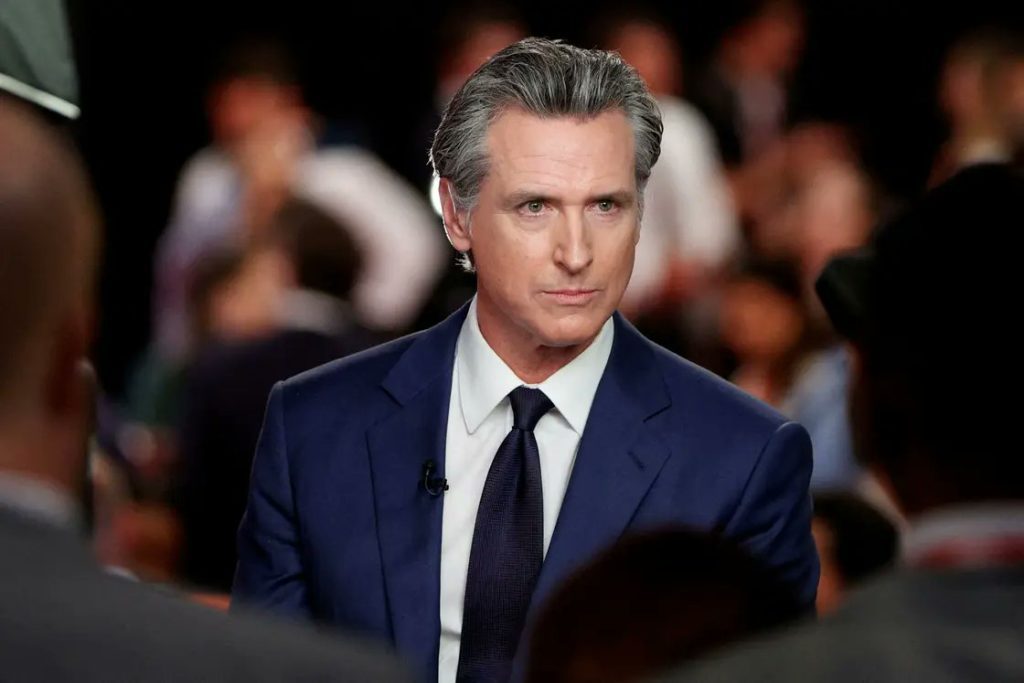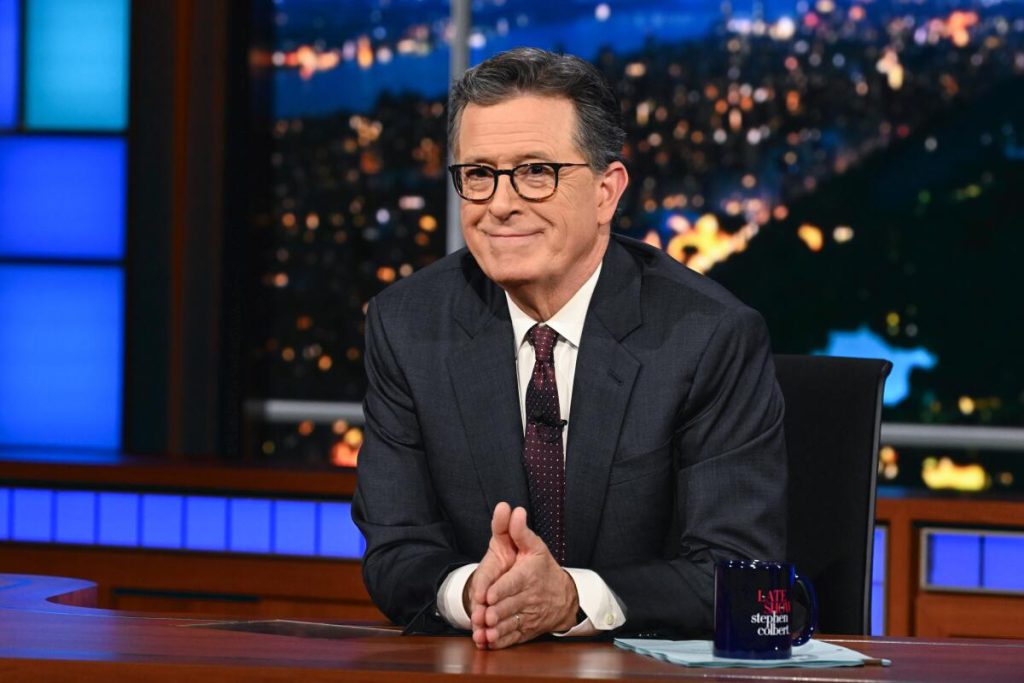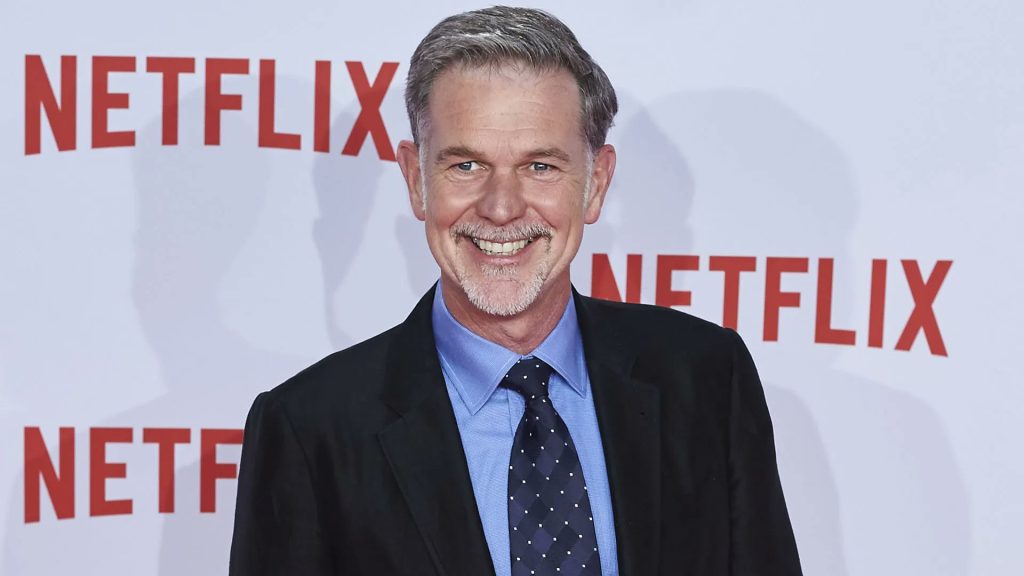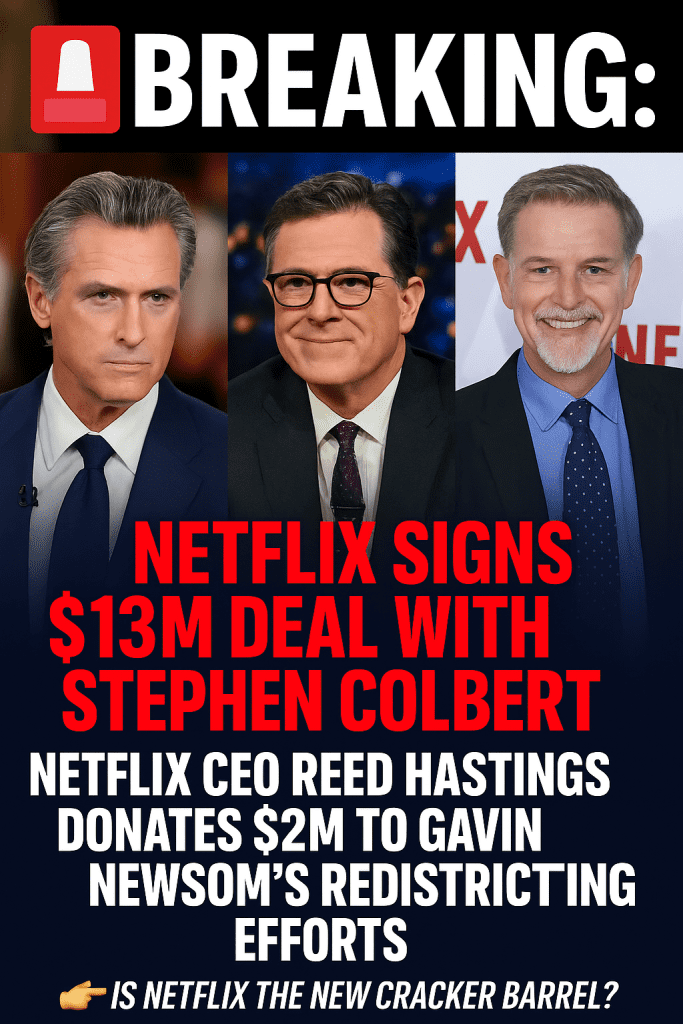Netflix Signs $13 Million Deal with Stephen Colbert While Reed Hastings Donates $2 Million to Gavin Newsom’s Redistricting Efforts—And People Wonder If Netflix Is Becoming the New Cracker Barrel
It’s not often that an entertainment headline feels like it belongs equally on the front page of a political section, but that is exactly what has happened with Netflix’s latest moves. In a matter of days, two stories broke that together have stirred up debate, curiosity, and plenty of speculation. First came the news that Netflix had signed a $13 million deal with Stephen Colbert, the late-night host known for his biting wit, quick humor, and unapologetically political edge. Almost immediately after, Reed Hastings, the co-founder and longtime face of Netflix, was revealed to have donated $2 million to California Governor Gavin Newsom’s redistricting efforts. Separate on their own, both stories are big. Put together, they’ve created a wave of conversation about where Netflix stands in today’s cultural and political landscape.

Stephen Colbert is not a random choice. He’s one of the most recognizable late-night figures in America, with a career that spans decades and an audience that trusts him for both comedy and commentary. Bringing him onto Netflix with such a substantial contract feels like a deliberate step to ensure the platform stays not only entertaining but relevant in shaping conversations. Colbert has always blended humor with politics, and Netflix seems ready to give him even more freedom to do it in the streaming space, away from the restrictions of traditional network television. For many, this is a smart business move. For others, it blurs the line between entertainment and activism in ways that streaming companies used to avoid.

Meanwhile, Reed Hastings’ donation to Gavin Newsom highlights another side of the story. Hastings has long been an outspoken supporter of education reform and Democratic causes, so his contribution to Newsom is not shocking. But the amount, $2 million, and the specific purpose, redistricting, has fueled questions. Redistricting isn’t a flashy political issue, but it is one of the most consequential because it determines voting maps and ultimately influences the future of elections. When someone with Hastings’ wealth and reputation steps into that conversation with a check that large, it naturally draws attention. And because Hastings’ name is still so closely tied to Netflix, it’s nearly impossible to separate the man from the brand.
Together, the Colbert deal and the Hastings donation have led some to ask whether Netflix is slowly becoming part of the same culture wars that swallowed companies like Cracker Barrel. That comparison may sound odd at first, but it makes sense if you remember how Cracker Barrel, a restaurant chain, ended up in the middle of heated debates over values, inclusivity, and politics. It went from serving food to being a cultural lightning rod, and some people see Netflix heading down a similar path. What started as a DVD delivery service, and then grew into the biggest streaming platform in the world, is now increasingly connected to political narratives, whether by design or by accident.

It’s worth noting that corporations and politics have always been tied together in America. Companies donate to campaigns, lobby governments, and support causes behind the scenes all the time. But what makes this case stand out is how directly the worlds of entertainment and politics seem to be colliding under the Netflix banner. On one side, you have Colbert, whose humor and satire often aim straight at America’s political divisions. On the other, you have Hastings, putting millions into one of the most sensitive aspects of democracy. And in the middle, you have Netflix, a company that millions of households still view as their escape from politics.
The reaction so far has been split. Fans of Colbert and supporters of Newsom have praised both moves as smart, timely, and aligned with values they believe in. Others feel uneasy, worried that Netflix is aligning itself too closely with one political vision, and in the process, alienating audiences who may not share those views. The company has already faced criticism in recent years over content controversies, and now it finds itself in an even more complicated position. The more Netflix takes on culturally powerful voices, the harder it becomes for it to be seen as neutral ground.

At the end of the day, Netflix is still a business, and business decisions often come down to what attracts subscribers and keeps them engaged. A deal with Colbert guarantees attention and relevance. Hastings’ donation, while technically personal, shows where the leadership around Netflix places its values. But whether intentional or not, these moves have linked the company’s name to a broader debate about the role of corporations in politics.
So is Netflix really becoming the new Cracker Barrel? Maybe not yet, but the comparison reflects a growing feeling that companies can no longer stay out of cultural battles, even if they want to. The bigger and more influential they get, the harder it is to avoid being pulled into them. Netflix has always marketed itself as a disruptor, willing to take risks in entertainment. The question now is whether that same spirit is beginning to spill into politics—and whether audiences are ready to accept it.


